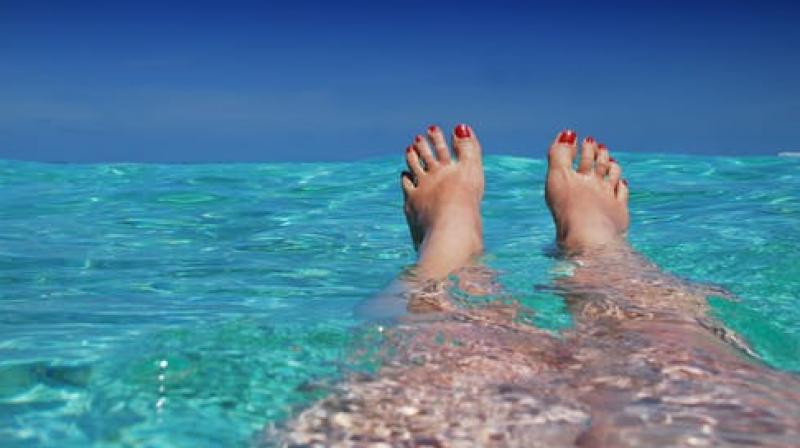Swimming in ocean can leave you susceptible to infection

Washington: However, refreshing and fun it might be to swim in an ocean, new research has pointed out that it alters the skin microbiome and is associated with an increased likelihood of infection. The research was presented at the meeting 'ASM Microbe 2019'.
"Our data demonstrate for the first time that ocean water exposure can alter the diversity and composition of the human skin microbiome," said Marisa Chattman Nielsen, the lead author. Recent research has demonstrated that changes in the microbiome can leave the host susceptible to infection, and influence disease states. Exposure to these waters like ocean, might lead to gastrointestinal and respiratory illness, ear infections, and skin infections.
Researchers examined nine volunteers at a beach who met the criteria of no sunscreen use, infrequent exposure to the ocean, no bathing within the last 12 hours, and no antibiotics during the previous six months.
Before the participants entered the water, researchers swabbed the participants on the back of the calf. They repeated the process after subjects had air dried completely following a ten-minute swim and at six and 24 hours post-swim.
The results of the experiment highlighted that before swimming, all individuals had different communities from one-another, but after swimming, they all had similar communities on their skin. At six hours post-swim, the microbiomes had begun to revert to their pre-swim composition, and at 24 hours, they were far along in that process.
"One very interesting finding was that Vibrio species (causes cholera) only identified to the genus level--were detected on every participant after swimming in the ocean, and air drying," said. Nielsen. At six hours post-swim, they were still present on most of the volunteers, but by 24 hours, they were present only on one individual.
"While many Vibrio are not pathogenic, the fact that we recovered them on the skin after swimming demonstrates that pathogenic Vibrio species could potentially persist on the skin after swimming," said Nielsen.

